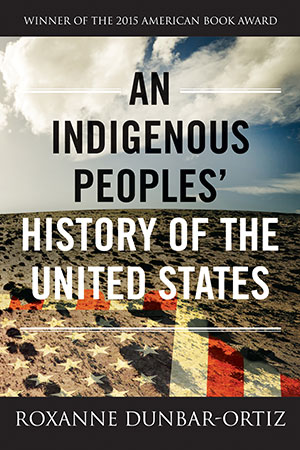Last week on Oct. 10, Michigan Tech’s Center for Diversity and Inclusion hosted a presentation by Dr. Roxanne Dunbar Ortiz showing the story of the United States from the perspective of the Native American population. Dunbar-Ortiz is a highly accomplished Native American historian and writer who has lived her life as an activist for various causes, from anti-war movements to the abolishment of Columbus day. The main topic of the presentation was her book “An Indigenous Peoples’ History of the United States” and the genocidal policies adopted by the United States from its very inception. In the book she makes an argument against genocide deniers that the native populations of North America have been subject to genocide repeatedly, using the legal definition presented in Article II of the U.N.’s Convention on the Prevention and Punishment of the Crime of Genocide. Dunbar-Ortiz states that the article has been violated by the U.S. government before and since the signing and ratification of the convention in 1951.
In her presentation, she pointed to the many wars against Native American nations, such as the Wounded Knee Massacre of 1890 where it is believed that over 300 starving Lakota were killed or wounded. Of the U.S. soldiers roughly 30 died and 20 were awarded the Medal of Honor. The massacre is still a victory in the U.S. military’s annals.
Dunbar-Ortiz also used the example of boarding schools established by the U.S. government specifically for NativeAmerican children in the mid nineteenth and early twentieth centuries. The children were typically taken away from their families by force in order to educate them by western standards, in an attempt to alienate them from their cultures. These boarding schools also used the children as a means to supply the local economy with inexpensive child labor as their education was poor at best and they were punished for speaking their native tongues. The convention, however, was not put in place until 1951 and is not retroactive, making it difficult to punish these violations. As Dunbar-Ortiz discussed, though, there have been many new violations since the ratification of the convention. One such act was the non-consensual sterilization of over 3,400 full blooded Native American women by several Indian Health Service regions from 1973 to 1976. This attempt at weakening the Native American gene pool is a direct violation of the convention. These are just a few instances of the many genocidal policies and actions committed by the United States government, Dunbar-Ortiz affirms. Public acceptance, or ignorance of these acts is exemplified in the celebration of Columbus Day, a holiday that celebrates the genocidal western explorer who came upon a land already teeming with Native American civilizations before leaving them destroyed beyond all repair.


